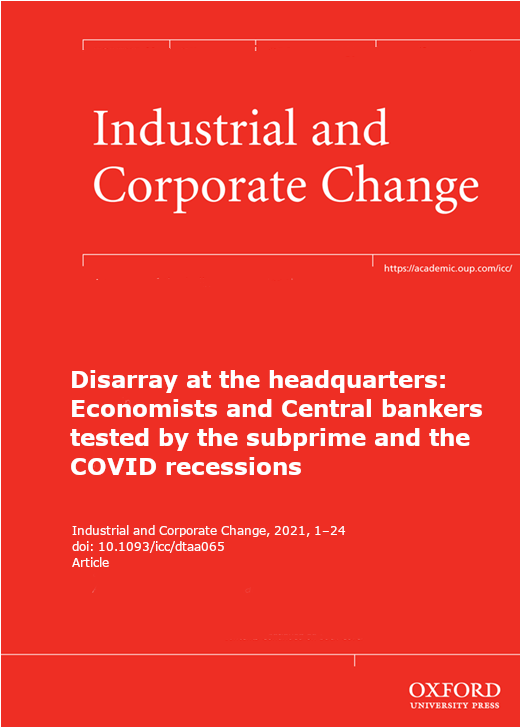
Acaba de sair o artigo “Disarray at the headquarters: Economists and Central bankers tested by the subprime and the COVID recessions” de autoria de Francisco Louçã, Alexandre Abreu e Gonçalo Pessa Costa.
O artigo, publicado no Industrial and Corporate Change (Oxford Academic), debruça-se sobre a evolução da macroeconomia contemporânea e as estratégias desenvolvidas pelos influenciadores económicos, bancos e decisores públicos nos últimos anos, como resposta às crises e à recessão da pandemia Covid 19 que se auspicia.
Abstract
The article explores the discussions among economic modelers and central banks research staff and decision makers, namely on the adequacy of unconventional monetary policy and fiscal expansionary measures after the subprime crisis and as the COVID recession is developing. First, the article investigates the arguments, models and policy proposals of several mainstream schools of economics that challenged the traditional Chicagoan orthodoxy based on Milton Friedman’s views, and developed the Lucas Critique, the New Classical synthesis and Real Business Cycle approach that replaced monetarism as the main rivals to old-time Keynesianism. Second, the transformation of Real Business Cycle models into Dynamic Stochastic General Equilibrium (DSGE) models is mapped, as it extended the ideas of the iniquity of government intervention and unified academic and central bank research. Yet, a battery of criticism was levied against the DSGE models and, as the debate emerged over quantitative easing and other tools of unconventional monetary policy, the need for policy pragmatism shattered the previous consensus. The article then proceeds to discuss how the leading mainstream academic economists reacted to changes in central banks‘ practices, noticing a visible dissonance within Chicago-school and DSGE economists, as well as major contortions of central bankers in order to justify their new postures. The article concludes with a call for an extensive menu of fiscal, industrial and innovation policies in order to respond to recessions and structural crises.
